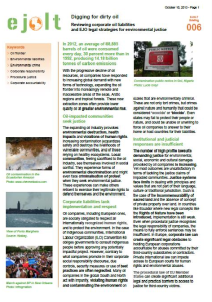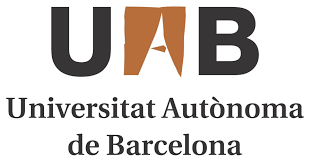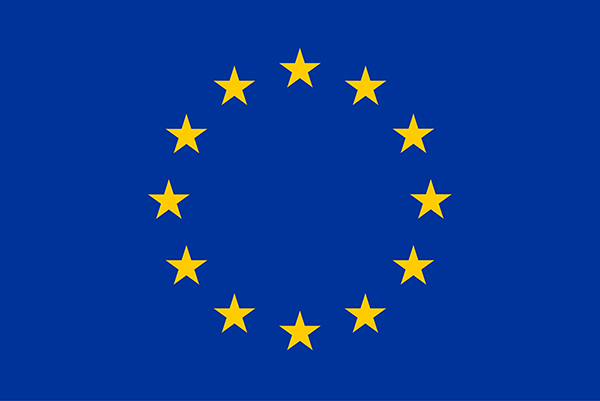
In 2012, an average of 89 million barrels of oil were consumed every day, 30 percent more than in 1992, producing 14.11 billion tonnes of carbon emissions. With the progressive decline of oil resources, oil companies have responded to increasing global demand with new forms of technology, expanding the oil frontier into increasingly remote and inaccessible areas of the seas, Arctic regions and tropical forests. These new extraction zones often provide lower quality oil at greater environmental risk. Oil companies, including European ones, are socially obligated to respect all internationally recognized human rights, and to protect the environment. However, contrary to what companies promote in their corporate social responsibility discourse, due controls, security measures or use of best practices are often neglected. Many oil companies in the global South and North act with impunity, violating human rights and contaminating the environment on scales that are environmentally criminal.
Here below are our Policy Recommendations
To European Political and Judicial Institutions:
On access to justice:
- To promote new (or reinforce existing) legal tools to address environmental crime as a crime against humanity and protect Rights of Nature. This entails development of existing jurisdiction and creation of a European Court of Environmental Crimes, eventually within the European Court of Human Rights (ECtHR).
- The establishment of an International Criminal Court for companies, including its mandate to environmental issues.
- The enforcement of the Aarhus Convention in all European countries.
On legal obligations:
- The EU and Member States (MS) do not always make full use of existing legal opportunities to protect Human Rights and the environment in relation to European corporations operating outside the EU. The EU has to extend such protection through multilateral agreements where not yet covered by international legal regimes.
- Give effect to the jurisprudence of the ECtHR and enhance energies between environmental and human rights protection. The EU and MS have to explore possibilities to integrate human rights protection more systematically in existing legal tools and regulation protecting the environment. This encompasses safeguarding local and indigenous communities, public consultation and participation, access to information and sustainability impact assessments.
- There should be mandatory due diligence to oblige companies to map the negative effects of their activities, to do everything possible to minimize them and to remediate damage and compensate for it. This has to be an obligation at the same level as that of shareholders to maximize their profit (shareholders can take a company to court if it doesn’t do what it requires to maximize profits).
- Transnational companies operating overseas should be obliged to adopt the same standards prevailing in their home countries and should apply advanced corporate responsibility policies everywhere. CEOs should be personally accountable for the social and environmental damage their company causes.
- Regulations on trade and investment should include strict and legally binding regulations to protect human rights and environment against extraterritorial corporates. Some examples include General System of Preferences (GSP) systems or Forest Law Enforcement, Governance and Trade Scheme (FLEGT) and the OECD Guidelines for Multinational Enterprises.
On transparency and reporting:
- Require all large companies operating in the EU to report on the social, human rights and environmental impacts and risks that their operations worldwide (including their complete supply chains) have on society and not just the bottom line.
- Require the Commission to develop indicators on key social, human rights and environmental impacts to ensure companies measure and report on their impacts and risks, for example, resource use, in a comparable way through European harmonized indicator methodologies (Global Reporting Initiative).
- Introduce effective monitoring and enforcement measures to ensure full, accurate and credible disclosure, including the possibility for external stakeholders to challenge the information provided.
- In order to better implement the Aarhus Convention, introduce a new EU directive on access to justice to ensure that members of the public from countries in which European corporations operate may hold such corporations accountable through court processes.
To the Nigerian and Ecuadorian Government:
- States should ensure that their legal systems extend existing criminal laws to business enterprises for crimes directly relevant to the protection of human rights, such as violent crimes and environmental crimes that may threaten the right to life or the right to health. Criminal liability should arise for acts of business enterprise as well as for failure to act with human rights due diligence to prevent such crimes by its own conduct or by conduct of its employees or agents, or of the companies belonging to the corporate group throughout its operations globally as well as all business partners.
- Accede to the Aarhus Convention, as a means of demonstrating serious intent to strengthen democratic accountability.
To national governments in impacted countries:
- Governments should muster the political will to ensure the enforcement of court decisions.
- In the case of Nigeria, the government should overhaul its judicial system and promote institutional capacity building of the judiciary so as to attain independent status from the influence and control of politicians and powerful elites.
To Civil Society:
- Intensify the use of litigation as an advocacy strategy to promote organisational positions and pursue social change.
- Legal training is required to systematize approaches and acquaint legal practitioners and environmental advocates with the prospects of litigation in oil conflicts and environmental justice. Design strategy using newly developed international standards for promoting responsible business conduct, such as UNGP, UNGC, OECD guidelines, etc.
- Make greater use of the Aarhus Convention, which obliges public authorities from countries that are parties to the Convention to provide access to information (and in certain cases, access to justice) to members of the public anywhere, i.e. irrespective of whether they are citizens of or residents in a country which is an Aarhus Party.
Read more in the 4 page EJOLT briefing on corporate oil liabilities.





Pingback: Petróleo: um pilar da expansão do capitalismo | WRM Portugués